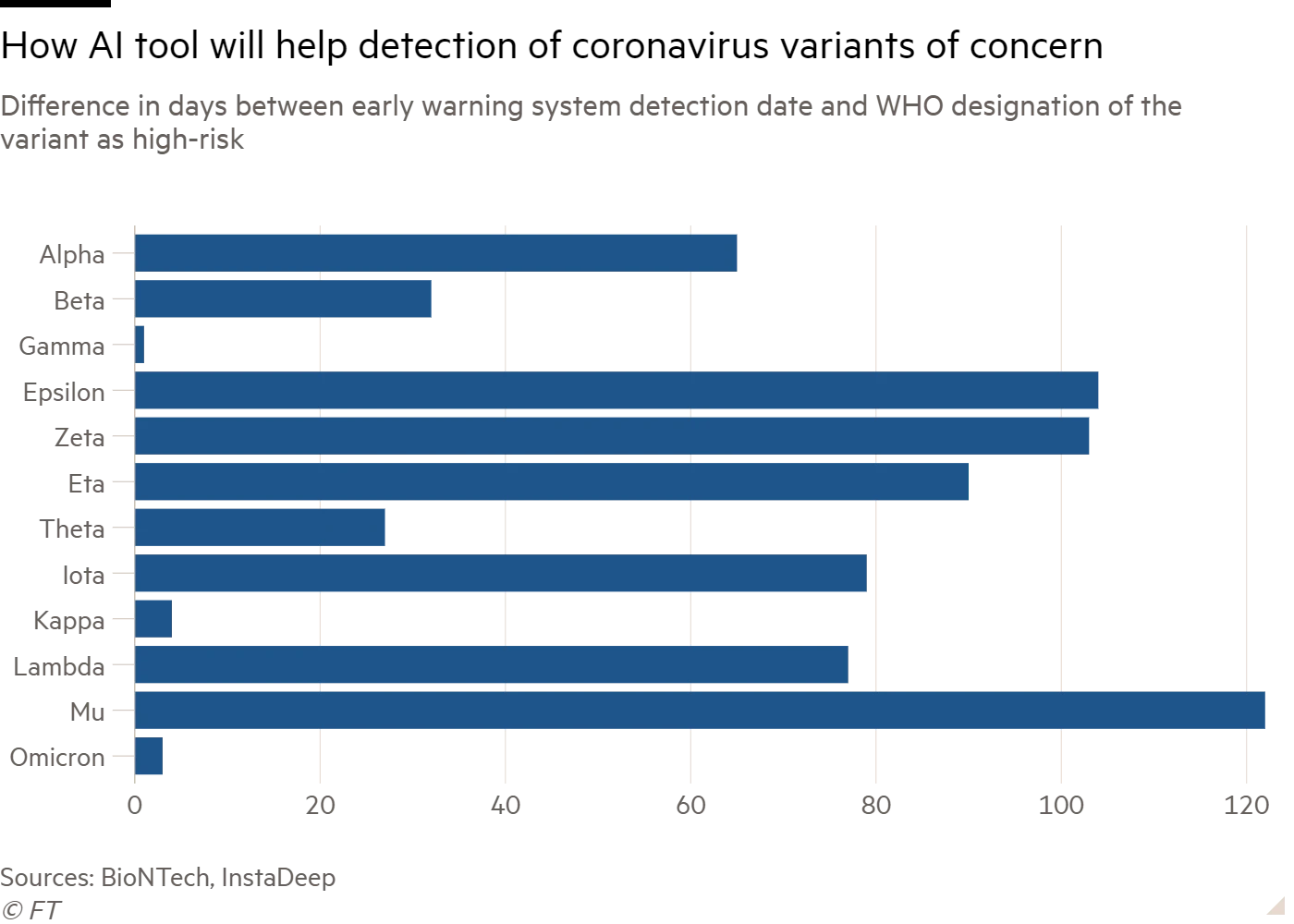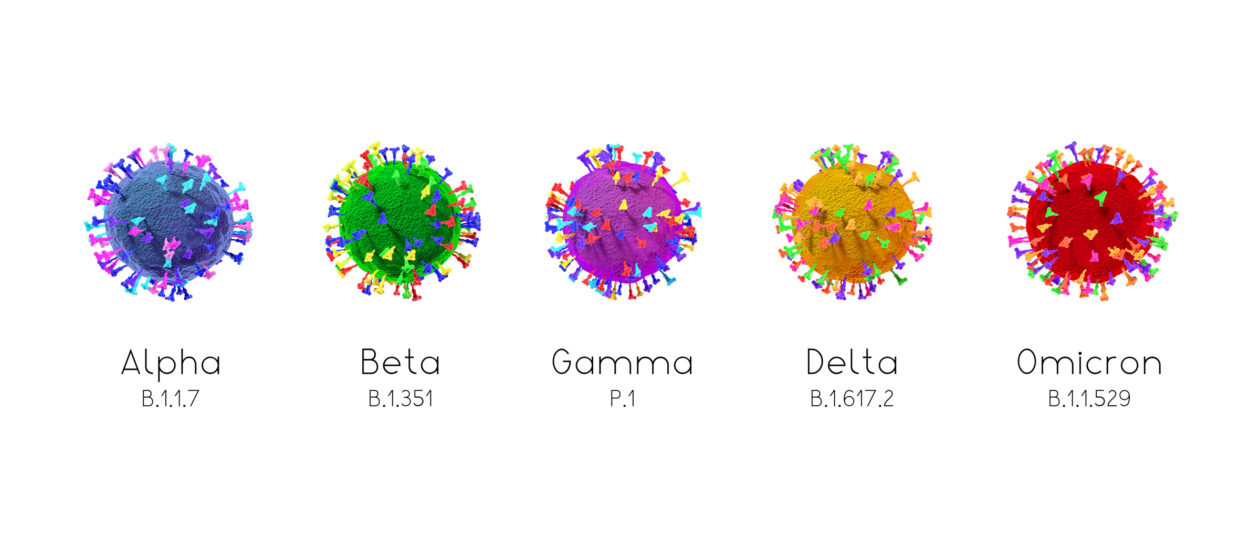
Date published: 12 January 2022
Authors: Madhumita Murgia and Oliver Barnes in London
Source: FT.com
Used under licence from the Financial Times. All Rights Reserved.
A new early warning system can predict the highest-risk coronavirus variants simply from their genetic code, alerting health authorities and vaccine developers to the potential risks months before they spread, according to a study.
The artificial intelligence-based program, developed by BioNTech, the German biotech group behind the leading Covid-19 vaccine, and north African AI start-up InstaDeep, identified more than 90 per cent of variants of concern, including the highly transmissible Omicron strain, on average two months before their designation by the World Health Organization.
The results from the study show that the program can evaluate the risks of new variants from their spike proteins within minutes, and monitor them as they evolve “nearly in real time”, according to the two companies. Ugur Sahin, chief executive of BioNTech, said the tool would be made freely available.
“Early flagging of potential high-risk variants could be an effective tool to alert researchers, vaccine developers, health authorities and policymakers, providing more time to respond to new variants of concern,” said Sahin.
The system red-flagged Omicron on the day its genomic sequence was first uploaded to the global Gisaid database late last year as the most concerning variant out of more than 70,000 variants that were discovered between early October and late November, said the study, which is yet to be peer reviewed. That was three days before it was classified as a variant of concern by the WHO.
It was also able to flag the Alpha variant, which spread quickly in southern England last winter, 65 days before its official designation by the WHO.
“More than 10,000 novel variant sequences are discovered every week and human experts simply cannot cope with complex data at this scale,” said Karim Beguir, co-founder and chief executive of UK-based InstaDeep. “For the first time, high-risk variants could be detected on the spot, potentially saving months of precious time.”

Most mutations in the Sars-Cov-2 genome are likely to be harmless, but a small proportion of changes to its genetic material can lead to more contagious variants such as Alpha, Delta and Omicron.
Genomic sequencing, a technique that allows mutations to be tracked in the virus’s genetic material, has now become a key surveillance tool in the fight against the virus.
Emma Hodcroft, an evolutionary geneticist at the University of Bern, said the early warning system could prove “useful” to track future variants but cautioned that “these predictions are only as good as the information we have to feed into them”.
“A lot of scientists also flagged Omicron on the day it was made available, but we’re still really limited by when we are able to sample such variants,” she said.
Though South African scientists raised the alarm on Omicron, more than 80 per cent of the 6.3m genomes uploaded to Gisaid come from North America and Europe. “We’ll be held back in how early we can see things unless we expand our genomic surveillance for Sars-Cov-2 into more countries, to get more reliable data,” added Hodcroft.
Using global sequence repositories such as Gisaid, the BioNTech/InstaDeep program is able to scan hundreds of thousands of registered virus variants and analyse each variant’s “fitness” — its potential to spread — and its immune escape properties, or its ability to evade existing immunity to the coronavirus.
These two metrics are then combined to create a risk score — a higher score indicates increased risk of the variant affecting global health. Omicron scored extremely high on both these metrics. The system also evaluated the IHU or B.1.640.2 variant recently observed in France, finding it to have immune escape properties relatively similar to Omicron but with significantly lower fitness, making it less of a concern.
Advance warning of a high-risk variant will also help scientists adapt vaccines. BioNTech said it would start clinical trials of its mRNA-based Omicron vaccine by the end of January. At the JPMorgan healthcare conference in San Francisco this week, Sahin said: “We have already started manufacturing for the commercial scale of Omicron vaccine. We anticipate to be ready for market supply by March 2022, subject to regulatory approval.”
Copyright The Financial Times Limited 2022
© 2022 The Financial Times Ltd. All rights reserved. Please do not copy and paste FT articles and redistribute by email or post to the web.

